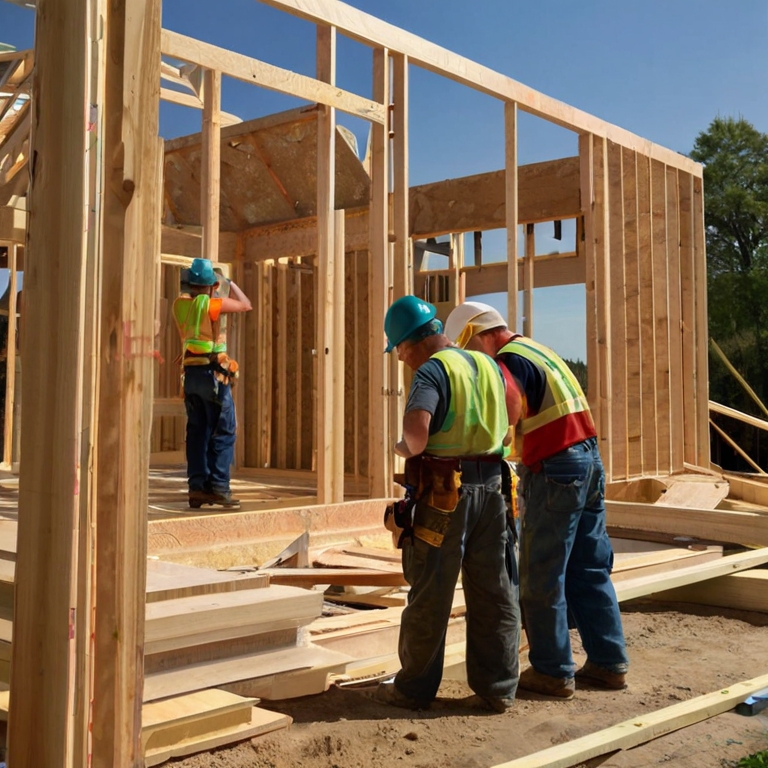How Can Non-Residents Buy Real Estate in Canada?
Investing in Canadian Homes: Exemptions to the Foreign Buyer Ban for Non-Residents
In recent years, Canada's real estate market has seen unprecedented interest from international investors, leading to soaring housing prices and growing concerns over housing affordability for Canadians. In response, the Canadian government enacted the Prohibition on the Purchase of Residential Property by Non-Canadians Act, effective January 1, 2023. This legislation, aimed at cooling the overheated housing market, imposes a ban on non-Canadians purchasing residential properties in Canada, with the goal of prioritizing housing availability for Canadian citizens and permanent residents.

The ban reflects a strategic move to tackle the challenges of affordability and accessibility in the housing market, particularly in urban areas that have witnessed significant price hikes. However, recognizing the complexity of the real estate landscape and the diverse needs of individuals looking to make Canada their home, the government has carved out specific exemptions within the ban. These exemptions allow certain non-resident individuals to participate in the housing market under well-defined conditions.
This article delves into the intricacies of the foreign buyer ban, shedding light on the rationale behind this pivotal policy decision and exploring the avenues available for non-residents to invest in Canadian homes despite the restrictions. From temporary residents to refugees, and from properties located outside major urban centers to development projects, we uncover the exemptions that open doors for non-residents to buy real estate in Canada. Join us as we navigate the legal and regulatory frameworks that outline how non-residents can contribute to and benefit from Canada's vibrant housing market, ensuring a balanced approach to real estate investment that respects the needs of all stakeholders in the Canadian community.

Understanding the Implications of the Ban
The introduction of the Prohibition on the Purchase of Residential Property by Non-Canadians Act marked a pivotal shift in Canada's approach to managing its real estate market. This legislative move was driven by a need to address a series of challenges that had emerged within the housing sector, primarily fueled by speculative foreign investment. As cities like Vancouver and Toronto saw property prices skyrocket, the dream of homeownership began to slip away for many Canadians, especially first-time buyers and middle-class families.
The Rationale Behind the Ban
The core rationale behind the foreign buyer ban is straightforward: to curb the influx of foreign money that has been accused of inflating property prices beyond the reach of average Canadian citizens and permanent residents. Studies and reports indicated that speculative buying by non-residents was contributing to a market scenario where housing was viewed more as a lucrative investment than as a basic human necessity. This speculation led to a disconnect between real estate prices and local income levels, exacerbating the affordability crisis.
Effects on the Housing Market
The immediate effect of the ban was anticipated to be a cooling of the housing market, with a reduction in competition leading to more stable or even lower prices. While it's too early for comprehensive data, initial observations suggest a slight moderation in markets that were previously overheated. However, the real estate market is influenced by a myriad of factors, including interest rates, immigration, and economic conditions, making it challenging to attribute changes to any single policy.
Concerns and Critiques
The ban has not been without its critics. Some argue that foreign investment plays a minor role in Canada's housing affordability issues, pointing instead to domestic speculators, a lack of housing supply, and bureaucratic hurdles that delay construction projects. Others worry about the message the ban sends to international investors and potential immigrants, who view property ownership as part of their Canadian dream.
Despite these concerns, the Canadian government remains committed to the ban as a tool to make housing more accessible to Canadians. By placing restrictions on foreign ownership, the government aims to ensure that the residential real estate market serves the needs of Canadians first and foremost, prioritizing their right to affordable housing over the interests of foreign investors.

Key Exemptions for Non-Residents
While the Prohibition on the Purchase of Residential Property by Non-Canadians Act imposes significant restrictions on foreign ownership of residential property in Canada, it also outlines several exemptions. These exceptions are critical in providing certain non-residents with the opportunity to buy homes in Canada, under specific conditions. Here, we explore these key exemptions, offering a clearer path for non-residents who still wish to invest in Canadian real estate.
1. Temporary Residents Studying in Canada
Non-Canadian individuals who are in Canada for educational purposes may be eligible to purchase residential property. To qualify, they must be enrolled in an authorized study program at a designated learning institution. Additionally, these individuals need to have been physically present in Canada for at least 244 days in each of the 5 calendar years preceding the year of purchase and must not have previously bought residential property in Canada during the ban period. This exemption aims to support international students who contribute significantly to the Canadian economy and culture.
2. Temporary Residents Working in Canada
Temporary workers in Canada can also benefit from an exemption. Eligible individuals must hold a valid work permit or authorization to work in Canada, with at least 183 days of validity remaining at the time of the purchase. Similar to students, they are restricted from owning more than one residential property under this exemption. This allows professionals contributing to the Canadian economy to secure housing during their stay.

3. Refugees and Protected Persons
Recognizing the unique challenges faced by refugees and protected persons, the act permits these individuals to purchase homes in Canada. This exemption underscores Canada's commitment to supporting those fleeing conflict or persecution, allowing them to establish permanent roots in a new country.
4. Non-Canadian Spouses or Common-Law Partners
If a non-Canadian is purchasing a residential property with a spouse or common-law partner who is a Canadian citizen, a permanent resident, or a non-Canadian exempt from the ban, they are allowed to proceed with the purchase. This exemption facilitates family unity and ensures that mixed-nationality families can own property together in Canada.
5. Properties Outside of Census Metropolitan Areas (CMAs) and Census Agglomerations (CAs)
The ban specifically targets properties within CMAs and CAs, where the housing affordability crisis is most acute. As such, non-Canadians can purchase residential properties located outside these areas, promoting investment in rural and less densely populated regions of Canada.
6. Development Purposes
Non-Canadians intending to buy residential property for development purposes are exempt from the ban. This exception encourages foreign investment in housing development projects, contributing to the increase in housing supply, which is crucial for addressing affordability.
Navigating the Purchase Process
For non-residents eligible under the exemptions of the Prohibition on the Purchase of Residential Property by Non-Canadians Act, understanding how to navigate the purchase process is crucial. This section provides insights into the legal and regulatory requirements, ensuring a smooth transaction for those looking to buy real estate in Canada.
Legal Representation and Consultation
The first step for any non-resident considering purchasing property in Canada is to seek legal advice. Real estate laws vary by province, and having a lawyer who understands the local real estate environment is invaluable. A legal professional can provide guidance on the necessary documentation and help navigate the complexities of the Canadian real estate market, including the specific exemptions under the foreign buyer ban.

Financial Considerations
Non-residents should prepare for the financial aspects of buying property in Canada. This includes understanding the foreign currency exchange rates, transferring funds internationally, and the Canadian banking system. Non-residents may also face higher down payment requirements and interest rates. It's advisable to consult with a financial advisor or mortgage broker who has experience with non-resident buyers to explore financing options.
Tax Implications
Purchasing property in Canada as a non-resident comes with specific tax considerations. Non-residents are subject to the Non-Resident Speculation Tax (NRST) in certain provinces, which is an additional tax on the purchase of residential property. Furthermore, income tax implications for rental income, and potential capital gains tax upon the sale of the property, must be understood. Professional tax advice is crucial to navigate these obligations effectively.
Property Selection and Offer
When selecting a property, non-residents should consider not only their personal or investment needs but also the location in relation to the exemptions of the foreign buyer ban. Working with a real estate agent experienced in dealing with non-resident buyers can provide valuable insights into eligible properties and market trends. Once a property is selected, making an offer involves drafting a purchase agreement, which should be reviewed by your legal representative.
Closing the Transaction
The closing process involves several steps, including securing financing, completing a home inspection, obtaining property insurance, and finalizing the transfer of ownership through your lawyer. Non-residents should be prepared for closing costs, which include legal fees, taxes, and other associated expenses.
Future of Real Estate Investing for Non-Residents in Canada
As we look toward the horizon of real estate investment in Canada, it's essential to consider the dynamic nature of the housing market and the legislative landscape. The Prohibition on the Purchase of Residential Property by Non-Canadians Act, with its current ban extending to January 1, 2027, signifies a pivotal moment in Canada's approach to housing affordability and market stability. However, the future holds potential changes that could impact non-residents looking to invest in Canadian real estate.

Anticipated Market Trends
Real estate is inherently influenced by a multitude of factors, including economic conditions, immigration rates, and government policies. As Canada continues to welcome a high number of immigrants annually, the demand for housing will likely remain strong, potentially influencing future decisions regarding the foreign buyer ban. Additionally, shifts in global economic conditions could impact investment trends, with non-residents seeking stable markets like Canada for real estate investment.
Legislative Adjustments
The Canadian government may review and adjust the foreign buyer ban as the market evolves and new data becomes available on the ban's effectiveness in improving housing affordability for Canadians. Modifications could include extensions, expansions, or relaxations of the ban, depending on the observed outcomes. Non-residents interested in Canadian real estate should stay informed on legislative changes and potential opportunities that may arise.
Opportunities for Non-Residents
Despite the current restrictions, Canada's real estate market continues to present opportunities for non-residents, particularly in areas exempt from the ban and through the various outlined exemptions. Development projects and investments outside of Census Metropolitan Areas and Census Agglomerations offer avenues for participation in the Canadian housing market. Furthermore, Canada's commitment to innovation and sustainable development in housing may open new investment opportunities aligned with global trends towards greener and smarter cities.
Staying Informed and Prepared
For non-residents eyeing future investments in Canadian real estate, staying informed about market trends, legislative changes, and economic indicators is crucial. Engaging with Canadian real estate professionals, legal advisors, and financial experts can provide valuable insights and prepare non-residents for investment opportunities as they emerge. The landscape of real estate investment in Canada is ever-changing, and adaptability, along with informed decision-making, will be key to navigating future possibilities.





